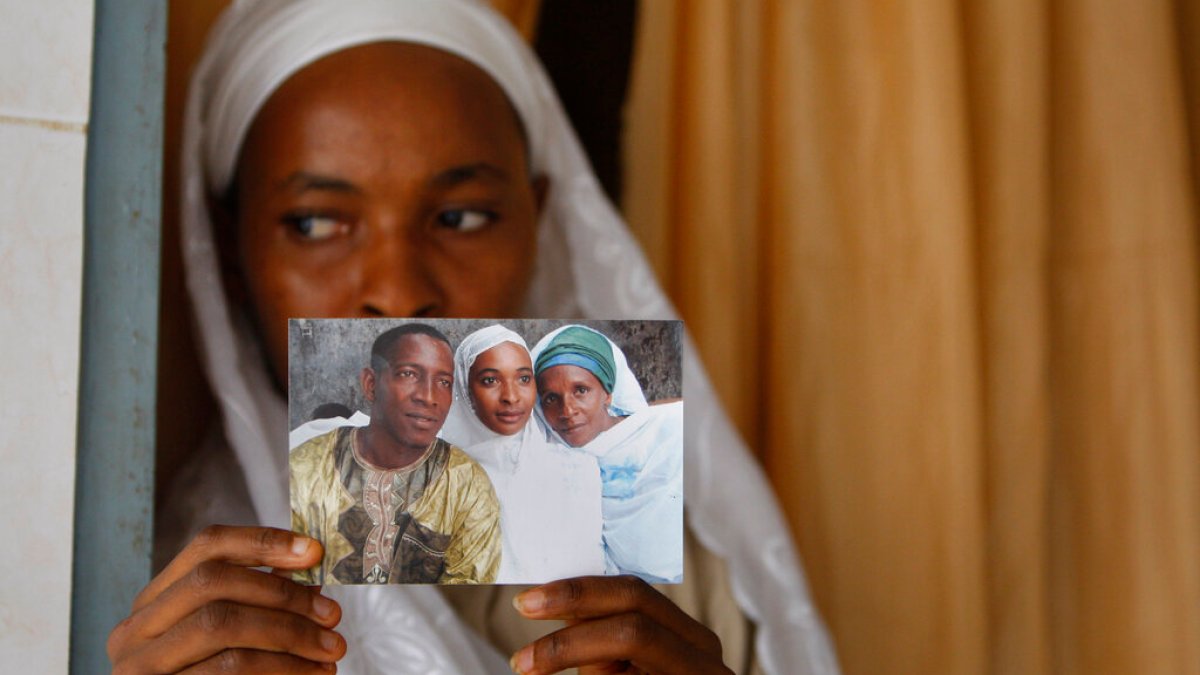At least 157 people were murdered and 109 women raped during the 2009 stadium massacre, according to a UN investigation.
The West African nation of Guinea will finally put on trial the alleged perpetrators of a massacre in 2009 which saw at least 157 people killed and more than 100 women raped, the justice minister has announced.
Justice minister Charles Alphonse Wright said on Friday that he hoped the trial – set to begin on the day of the 13th anniversary of the September 28 massacre – “will revisit our history, our past, that we all emerge from this trial with a new vision of our Guinea”.
More than a dozen suspects including the country’s former military coup-leader, Moussa Dadis Camara, have been charged with crimes in connection with the horrors of the 2009 attack, when security forces opened fire on people protesting in a stadium in the capital, Conakry.
Camara fled into exile in Burkina Faso after he survived an assassination attempt several months after the stadium massacre.
Last year, Camara returned to Conakry from Burkina, telling his supporters that he had faith in the country’s courts.
Camara said he was ready to face justice, but has since returned to Burkina.
‘Evident lack of will’
For years Guinea’s government had sought to prevent Camara’s homecoming, fearing he could stoke political instability.
However, another coup last year put a military government in power that was more amenable to Camara’s return.
Human rights groups had long complained that there was “an evident lack of will to complete preparations” for the trial.
At least 157 people were murdered and 109 women raped during the stadium massacre, according to a United Nations international commission of inquiry. The victims’ testimonies were harrowing, with the UN inquiry concluding that the massacre was a “premeditated act” by the military government.
Camara’s military government blamed “uncontrolled” elements of the army for carrying out the rapes and killings.
But Camara’s top aides were at the stadium and did nothing to stop the atrocities, a Human Rights Watch report said.
Human Rights Watch said its investigation showed that Camara’s red-bereted presidential guard surrounded the stadium where opposition supporters had gathered and blocked the exits.
The troops entered and immediately opened fire with AK-47 assault rifles as panicked demonstrators tried to flee. Many were crushed to death, while others were gunned down as they tried to scale the stadium’s walls.
Dozens of women were seized from the stadium and later from clinics where they had gone seeking medical treatment for injuries sustained at the massacre site. The abducted women were driven in military vehicles to villas, where they were gang-raped by uniformed men over several days, Human Rights Watch said.
The International Criminal Court (ICC) sent a delegation to Guinea in early September to assess trial preparations.
The African Francophone Coalitions for the International Criminal Court, a civil society network, said time was running out.
“Since investigations opened before the Guinean courts in February 2010, many victims have died, some are sick and live in the most precarious conditions,” the network said in a statement on Thursday.
“To this sad fact, we must add the situation of women repudiated by their husbands and those infected with HIV, following the rapes of which they were victims, without forgetting the orphaned children who have lost their schooling, who have now become adults.”
